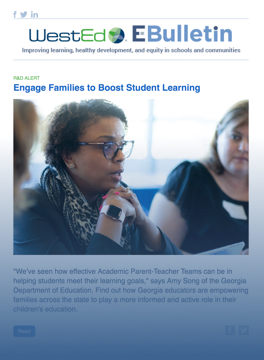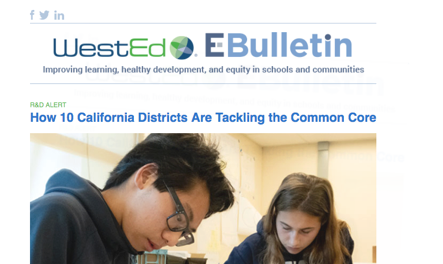Resiliency: What We Have Learned

Description
A few years ago, resiliency theory was relatively new to the fields of prevention and education. Today, it is at the heart of hundreds of school and community programs that recognize in all young people the capacity to lead healthy, successful lives.
The key, as Benard reports in this synthesis of a decade and more of resiliency research, is the role that families, schools, and communities play in supporting, and not undermining, this biological drive for normal human development.
Of special interest is the evidence that resiliency prevails in most cases by far—even in extreme situations, such as those caused by poverty, troubled families, and violent neighborhoods.
An understanding of this developmental wisdom and the supporting research, Benard argues, must be integrated into adults’ vision for the youth they work with and communicated to young people themselves.
Benard’s analysis of how best to incorporate research findings to support young people is both realistic and inspirational. It is an easy-to-read discussion of what the research has found along with descriptions of what application of the research looks like in our most successful efforts to support young people.
Resource Details
Product Information
ISBN: 978-0-914409-18-2Copyright: 2004
Format: Trade Paper
Pages: 148
Publisher: WestEd
Praise for this Resource
“In all of our research on raising student achievement, a cornerstone must be the resilience research presented in this book. Bonnie Benard’s important work reminds us of the challenges and choices educators and the community face in helping to support all young people to lead happy and productive lives.”
Delaine Eastin, National Institute for School Leadership and Former California Superintendent of Public Instruction“Resiliency is a hopeful and practical book. As a comprehensive review of the resiliency literature, it is a rich source of theory. Additionally, Benard has distilled these theories into concrete ideas for action—all in a clear writing style.”
Greater Good, Center for the Development of Peace and Well-Being, University of California, Berkeley“[This] deceptively slim volume is packed with findings from several hundred research studies, programs, and projects, and insights from theorists in the youth resiliency field and those related to it….Researchers, doctoral students, teachers, counselors, administrators, social workers, and parents, indeed all who care for the welfare of adolescents, should find Resiliency: What We Have Learned a valued resource.”
TC Record/November 2004“I recommend this book to anyone searching for a positive approach to working with youth.”
Education Review/September 2005“Bonnie Benard presents a lucid analysis of resilience research and its applications over the past decade. She provides a solid and much needed foundation for building programs that focus on human capacities and gifts rather than challenges and problems.”
Sybil Wolin, Director, Project Resilience“This is a terrific resource for teachers, parents, communities—even youth themselves. Bonnie has covered more ground than anyone I am familiar with in this field. Her writing is clear and to the point, very accessible to a variety of readers.”
Dennis Saleebey, DSW, Professor of Social Welfare, School of Social Welfare, University of Kansas“Bonnie Benard’s masterful synthesis of research on resilience is a landmark document, a new framework that will revolutionize the way America thinks about working with and relating to children and youth. Resiliency: What We Have Learned presents a desperately needed positive perspective on youth development and learning. Finally, schools, families, and youth-serving organizations have a proven way to develop competent, confident, and caring young citizens—well prepared to contribute and do well in today’s challenging world.”
Jeanne Gibbs, Developer, Tribes Learning Communities“Bonnie Benard has done it again. Educators who dream of bringing out the best in all children can take heart. Benard illuminates burgeoning evidence that every individual is hard-wired for self-righting. The professional challenge of the next decade will be to dare to see this innate capacity as the human birthright of every child. It’s a reading must.”
Kathy Marshall, Executive Director, National Resilience Resource Center, University of Minnesota
Stay Connected
Subscribe to the E-Bulletin and receive regular updates on research, free resources, solutions, and job postings from WestEd.
Your download will be available after you subscribe, or choose no thanks.




